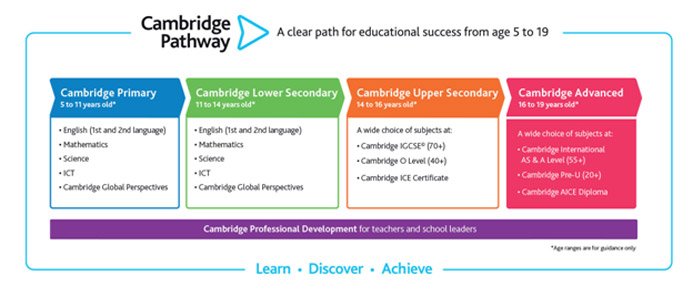International Curriculum
What are schools bringing into their curriculum with Cambridge? We set out three important things we want students to develop – deep subject knowledge, conceptual understanding
Deep subject knowledge, conceptual understanding
Cambridge programmes combine an emphasis on mastering subjects in depth, at the same time as developing skills for study and work in the future.
We believe in the intrinsic value of studying a subject in depth. In the words of Andreas Schleicher (2017), Director for Education and Skills, OECD: ‘In
Deep subject knowledge is important in order to develop the ability to solve problems, to apply
Regular consultation with leading higher education institutions (including Harvard, Stanford
We see key concepts as essential ideas that help learners develop a deep understanding of their subject and make links between different aspects. Key concepts can often transform a student’s grasp of their subject, and open up new ways of thinking about, understanding or interpreting the important things to be learned. Good teaching and learning incorporate and reinforce a subject’s key concepts to help learners gain:
- greater depth and breadth of subject knowledge
- confidence, especially in applying knowledge and skills in new situations
- fluency to talk about their subject conceptually and show how different aspects link together
- a level of mastery of their subject to help them enter higher education.
As well as encouraging students to develop higher order thinking skills within subject disciplines –
Of
Progression
We offer a coherent curriculum with clear progression at each stage, for students aged 5 to 19. We identify clearly what we want students to learn at each stage. At each stage, students build on their previous learning – a ‘spiral approach’ that reinforces what students have learned, while at the same time taking them forward. We design each syllabus with this spiral approach in mind.

Multilingual education
We value multilingualism and believe that there are many benefits to being bilingual or multilingual – for students, society
At Cambridge, we support schools and partners to implement bilingual education. Cambridge programmes are often used for the English medium strand of a bilingual programme, and we offer curriculum and assessment for English as a second language for students aged 5 to 16.
Our wide subject range includes a large number of languages – currently, Cambridge IGCSEs are available in more than 30 languages.
Professional development in multilingual education supports our curriculum and assessment offer, with programmes for teaching bilingual learners and courses on language awareness, training around specific language syllabuses and guides for teachers and principals. Our website brings this together in a dedicated bilingual education section.
*The text above has been sourced directly from Cambridge international assessments website.
